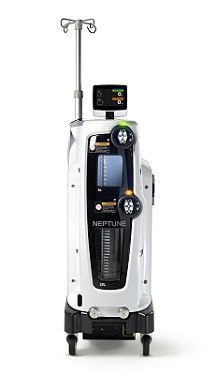Southern Cross Hospitals saves 88 tonnes of landfill waste
 Southern Cross Hospitals is preventing an estimated 88 tonnes of medical waste from going into landfill every year by implementing a new waste system.
Southern Cross Hospitals is preventing an estimated 88 tonnes of medical waste from going into landfill every year by implementing a new waste system.
The Stryker Neptune 3 Fluid Waste Management System replaces the current method of removing contaminated fluid waste with disposable plastic liners and its rollout into Southern Cross Hospitals’ network of 10 hospitals is now almost complete.
Biological waste, a form of medical waste, is a by-product of any surgical procedure. It is typically generated by the suction of blood or sterilised fluids such as saline or glycine which is used during surgery.
Some procedures, in particular urology and arthroscopic surgeries, can produce up to 20 litres of fluid waste. The Neptune system is able to draw the waste through a tube that is connected via a filter to a Neptune Rover. The Rover is then wheeled to a docking station and can be emptied into the sewerage system. The waste is then treated in the same way as human excrement to allow for appropriate disposal through the sewerage system.
Prior to this innovation, the common method for disposing medical waste fluid was by using single-use plastic suction liners which can only be disposed of in landfills. In 2017, Southern Cross Hospitals estimated that its facilities used enough suction liners to accommodate up to 88,000 litres (or 88 tonnes) of waste.
Terry Moore, Southern Cross Hospitals’ Chief Executive Officer, said it is very challenging to dispose of medical waste in a way that is both safe and sustainable.
“As part of our strategy to reduce our environmental impact, we constantly look for new ways that enable us to minimise waste while maintaining a high standard of care. Implementing this system not only helps us do that but it also mitigates the risk of contamination and improves efficiencies between procedures,” he said.
Jeanette Kini, General Manager of Southern Cross Hospitals’ North Harbour campus, said they have been using the Neptune 3 system with success since early 2019.
“Our hospital was one of the first in both the private and public sectors in New Zealand to adopt the Neptune 3 system which was quite exciting, and our staff and specialists have been incredibly supportive of the change,” said Kini.
Southern Cross Hospitals is also employing other sustainable measures such as the implementation of a recycling system that re-uses aluminium canisters which contain anaesthetic gases. Another project in progress is looking at how 30-40 single-use sterile products can be consolidated into a single customised procedure pack instead of being packaged separately.
ENDS